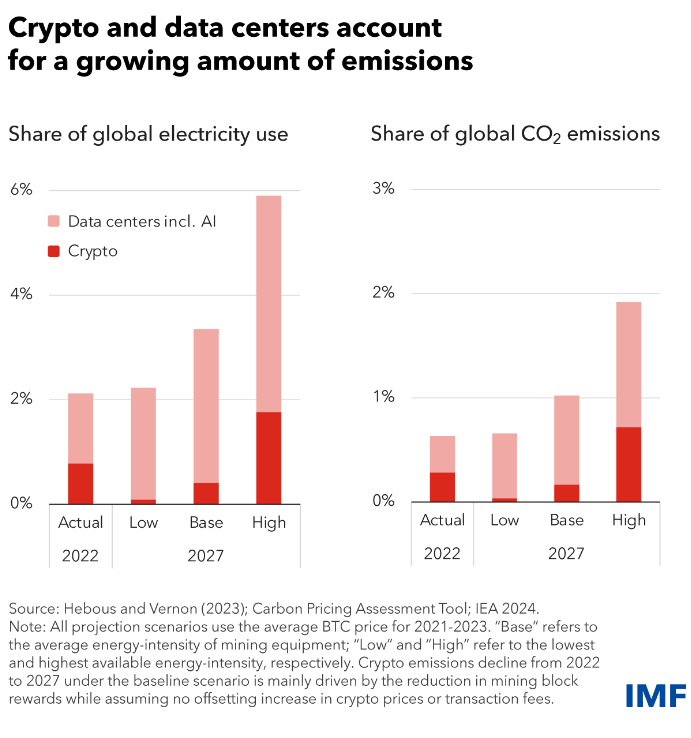The Worldwide Financial Fund (IMF) has proposed greater power taxes to scale back emissions from crypto miners and synthetic intelligence (AI) knowledge facilities, in keeping with an Aug. 15 report.
The IMF argues that these sectors devour 2% of the world’s electrical energy and contribute almost 1% of world emissions. The monetary regulator claimed that one Bitcoin transaction makes use of the identical electrical energy that a median particular person in Ghana or Pakistan would use in three years.
Moreover, it argues a ChatGPT question consumes ten instances extra electrical energy than a Google search because of the energy-intensive nature of AI knowledge facilities.
The IMF initiatives that power consumption from these sectors in three years might rise to three.5%, matching Japan’s present electrical energy use, which is the fifth-largest on the planet.
Enhance power taxes
To deal with this, the IMF recommends a big enhance in power taxes. It suggests governments impose an 85% hike in electrical energy taxes for crypto miners, equating to $0.047 per kilowatt hour or $0.089 when together with air air pollution prices. This measure might allegedly generate $5.2 billion yearly and reduce emissions by 100 million tons, roughly equal to Belgium’s present emissions.
Equally, the IMF advises taxing knowledge facilities at $0.032 per kilowatt hour, rising to $0.052 with air air pollution prices. This might assist governments accumulate $18 billion every year. They argue that knowledge facilities use much less power and infrequently function in areas with greener electrical energy and would thus face decrease taxes than crypto miners.
Nevertheless, the IMF stresses that implementing these taxes would require worldwide cooperation to forestall miners and knowledge facilities from shifting to areas with cheaper power charges.
The IMF additionally suggests focused measures to advertise energy-efficient practices amongst crypto miners and knowledge facilities. These might embrace incentives for utilizing extra environment friendly gear, adopting much less energy-intensive mining strategies, and complementing taxes with credit for zero-emission energy agreements or renewable power certificates.
Shafik Hebous, the deputy division chief of the IMF Fiscal Affairs Division, and Nate Vernon-Lin, an economist within the local weather coverage division, authored the report.


